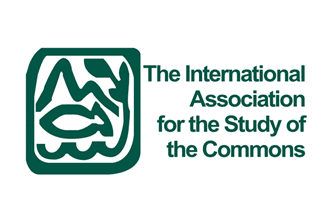In November 2019, the IASC has held its regular Council Elections. After validation of the results, the newly elected candidates are presented below.
We congratulate them with their election and thank all candidates for participating in the elections. The newly elected candidates will start office on January 15, 2019. On that date, the Presidency of the IASC will also be handed over from John Powell (CCRI, UK, who will become Past-President) to Marco Janssen (ASU, USA, currently President-Elect).
Council Member Sheila Foster and Past-President and long-standing Council Member Tine De Moor will end office on January 15, 2019, having reached their maximum term according to the bylaws. The IASC Council thanks them deeply for their efforts and successes over the past years.
President-Elect |
||
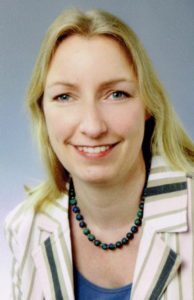 | Insa TheesfeldProfessional background My experience, in terms of both thematic expertise development and administrative-organizational work, makes me feel prepared to take up the challenges that come with the presidency. I am an agricultural economist, specialized in institutional economics and resource governance. I hold Habilitation and PhD degrees from Humboldt University Berlin awarded in 2005 and 2013 respectively. My research focuses on the fit between policies to be implemented and the institutional arrangements in place on the one hand, and the creation of institutional arrangements by communities to govern their use of natural resources sustainably at different scales on the other. I have a strong methodological interest in institutional and policy analysis with a focus on power and leadership issues. Besides, a significant strand of my work has explored issues related to water resources management in many parts of the world and the linkages to other natural resources, emerging from property rights structures in place. With the geographical orientation of my research I have been working on development of the research field on pseudo-commons in post socialist countries. I was a visiting scholar at the Ostrom Workshop in Political Theory and Policy Analysis in 2005 and 2010. Between 2007 and 2014 I led the research team “Institutions and Natural Resource Management” at the Leibniz Institute of Agricultural Development in Transition in Halle, Germany, and taught at the Humboldt University Berlin. Since 2014, I hold a full professorship and head the Department of Agricultural, Environmental and Food Policy at the Martin Luther University Halle-Wittenberg, Germany. Institutional webpage |
|
New Council Members (2 positions) |
||
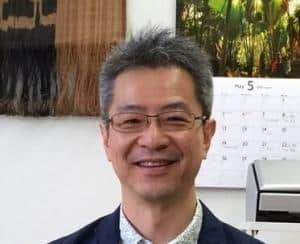 | Inoue MakotoProfessional background Professor of Environmental Sociology at Faculty of Human Sciences, Waseda University, Japan. My career started as a researcher of forest policy at Forestry and Forest Products Research Institute (FFPRI) in Japan. I stayed however in Indonesia for three years to conduct fieldwork to explore the livelihoods of indigenous people in Kalimantan (Borneo island), and got my Ph.D. Such experience made me always consider the local reality in the global context and try to bridge their livelihoods to provincial/national policies and international conventions, while the basis of my research is certainly on the local reality. When I served as Professor at the University of Tokyo, I led many international research projects, and (co-) edited books. One of my main academic contributions to studies of the commons is to conceptualize “graduated membership” in which rights and duties of the members are gradually set, and “commitment principle” which recognize the rights of stakeholders to speak and make decisions in a capacity that corresponds to their degree of commitment. These concepts are expected to be useful to create and revive institutions. I am elected as a board member of multiple academic societies in Japan such as Environmental Sociology, Environmental Economics & Policy Studies, Cultural Anthropology, Tropical Ecology, etc. It shows his inter-disciplinary academic career. I also serve as an editorial board member of ‘Forest Policy and Economics’ (Elsevier) and other international journals. Institutional webpage |
|
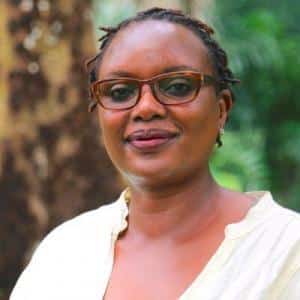 | Esther MwangiProfessional background Scientist with the Center for International Forestry Research (CIFOR), head CIFOR Nairobi office. I worked on my PhD dissertation (awarded in 2003) with Elinor Ostrom and later went on to win in 2005 a prize for the best dissertation in Public Policy awarded by the Policy Studies section of the American Political Science Association. I worked on property rights issues, mainly tracking the transformation from collective to individual rights, exploring the drivers of such transformation, the internal processes and the distributional, outcomes. I also investigated the environmental impacts of the transition to individual units. Since I completed my PhD, I have worked on several other issues, such as the role of collective action and property rights in poverty reduction, gender, benefits distribution, mangroves tenure and governance, impacts of tenure reform implementation on tenure security, livelihoods and sustainability, the development of a prototype forest observatory for the Eastern Africa region, and the governance of linked resources such as forests and water. I work globally and my projects have included multiple countries in Africa, Asia, and Latin America. I started my work in the drylands of East Africa inhabited by pastoralists and am currently working on forests - montane forests, coastal mangroves and inland dryland forests. Institutional webpage |
|
New Student Council Member |
||
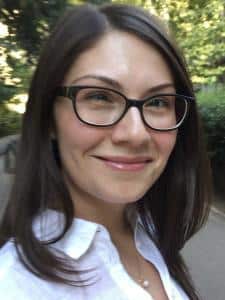 | Beril OcaklıProfessional background Doctoral researcher at the Humboldt-Universität zu Berlin, Germany. I hold a BA degree in International Economics from the Corvinus University of Budapest, Hungary and attained my MSc degree in Development Studies at the London School of Economics and Political Science, UK. In my research, I explore conflict and cooperation in coupled social-ecological systems. Empirically, I study the institutional foundations of behavior in gold mining transaction systems in Kyrgyzstan. I employ a multi-method approach including behavioral experiments. In my analysis, I focus on the unobservable institutional elements of beliefs and norms regarding implied rules-in-use. My research remains to date exciting yet challenging for two reasons. First, the post-socialist transformation context provides a rich institutional landscape. The plurality of beliefs, norms, and organizations inherited from the past motivate actors quite distinctly, leading to contested imaginaries and aspirations of development within the country. Second, these divergent narratives challenge the formal definitions of commons. As a result, in spaces of resistance subsoil resources are being defied as private goods and defended as commons - resources as well as cultural commons. I draw on more than 10 years of professional experience in managing international projects in the field of sustainable production and management of resources ranging from land to subsoil in Eastern Europe and Central Asia. Since April, I have been focusing solely on my research in its final phase which I commenced with a visiting fellowship at the Center for Behavior, Institutions and the Environment at Arizona State University. Institutional webpage |
|


